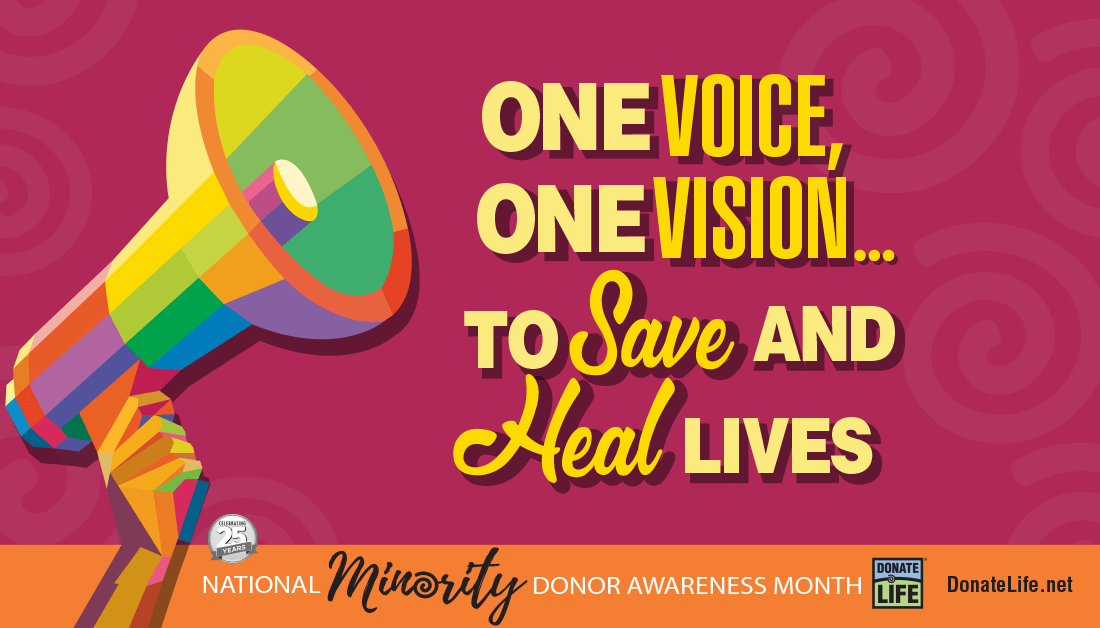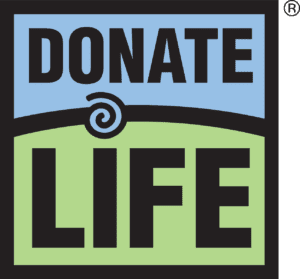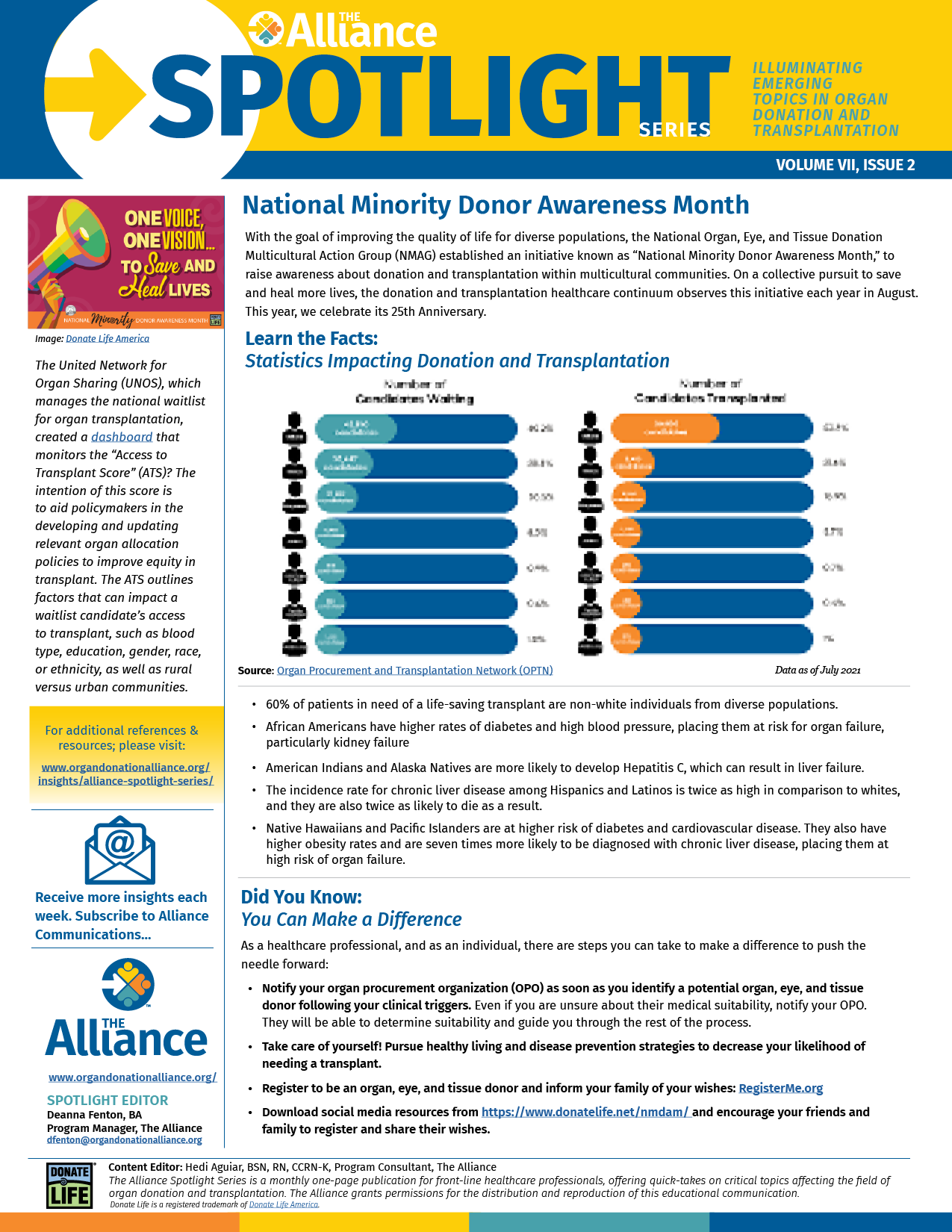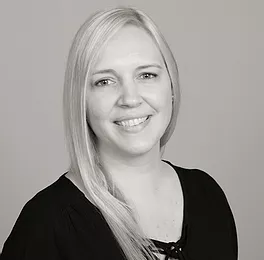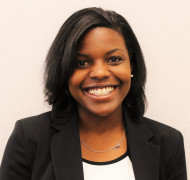With the goal of improving the quality of life for diverse populations, the National Organ, Eye, and Tissue Donation Multicultural Action Group (NMAG) established an initiative known as “National Minority Donor Awareness Month,” to raise awareness about donation and transplantation within multicultural communities. On a collective pursuit to save and heal more lives, the donation and transplantation healthcare continuum recognizes this observance annually in August. This year, we celebrate its 25th Anniversary.
Learn the Facts: Statistics Impacting Donation and Transplantation
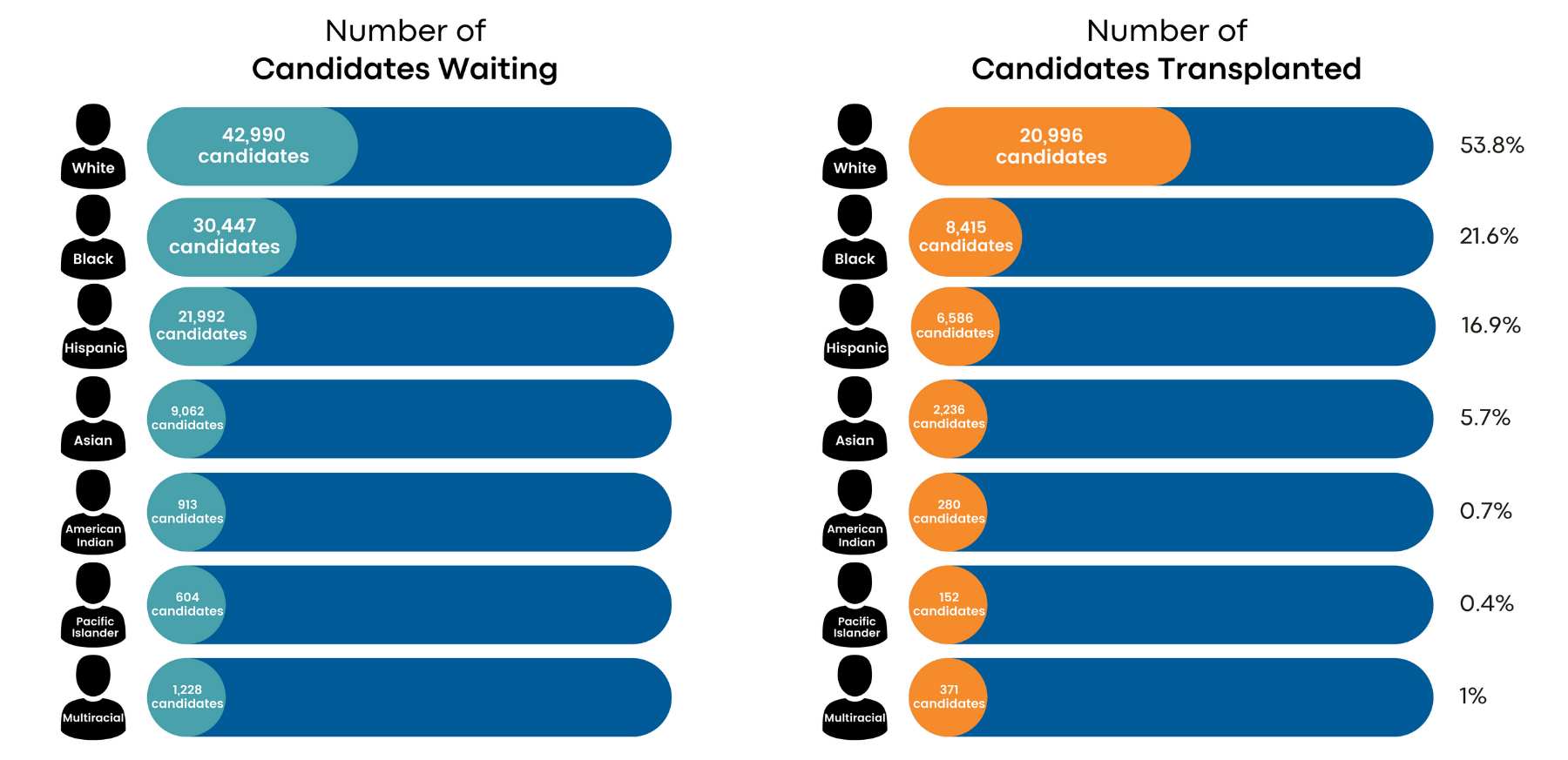
- 60% of patients needing a life-saving transplant are non-white, diverse populations.
- African Americans have higher rates of diabetes and high blood pressure, placing them at risk for organ failure, particularly kidney failure.
- American Indians and Alaska Natives are more likely to develop hepatitis C, which can result in liver failure.
- The incidence rate for chronic liver disease among Hispanics and Latinos is twice as high in comparison to whites, and they are also twice as likely to die as a result
- Native Hawaiians and Pacific Islanders are at higher risk of diabetes and cardiovascular disease. They also have higher obesity rates and are seven times more likely to be diagnosed with chronic liver disease, placing them at high risk of organ failure.
- Asian Americans have less prevalence of diabetes and heart disease, but suffer significantly from liver disease and hepatitis, placing them at risk for organ failure.
Did You Know: You Can Make a Difference
As a healthcare professional, and as an individual, there are steps you can take to make a difference to push the needle forward.
- Notify your organ procurement organization (OPO) as soon as you identify a potential organ, eye, and tissue donor following your clinical triggers. Even if you are unsure about their medical suitability, notify your OPO. They will be able to determine suitability and guide you through the rest of the process.
- Take care of yourself! Pursue healthy living and disease prevention strategies to decrease your likelihood of needing a transplant.
- Register to be an organ, eye, and tissue donor and inform your family of your decision: Visit RegisterMe.org.
- Download social media resources from https://www.donatelife.net/nmdam/ and encourage your friends and family to register and share their wishes.




